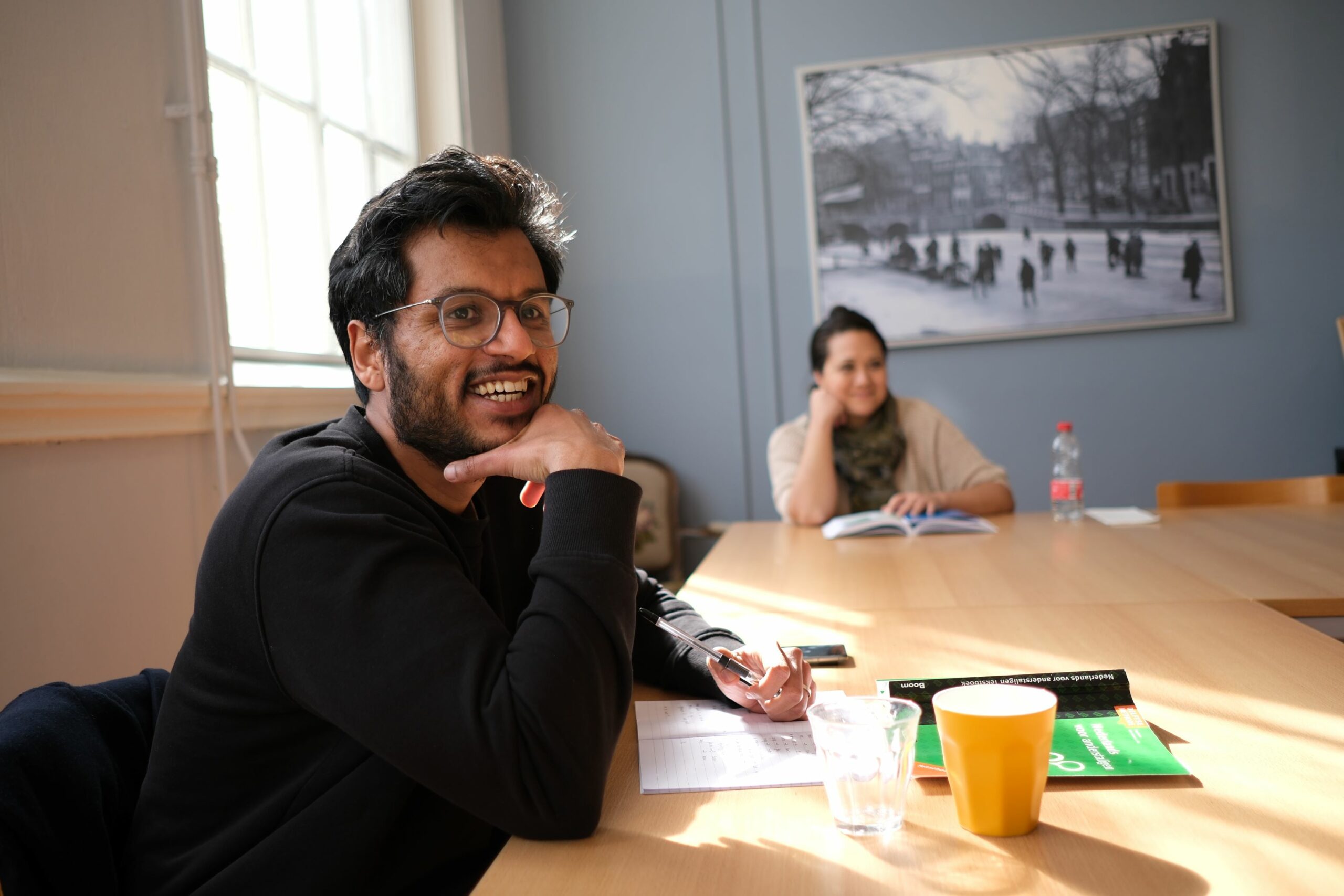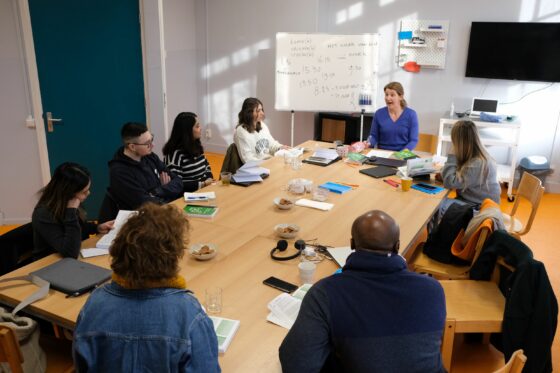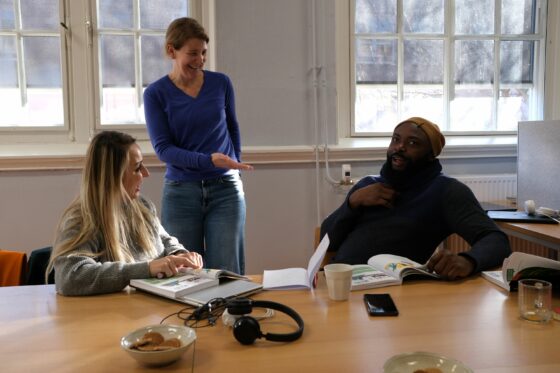Partner content
It’s all Dutch to me: language courses that get students talking

“Sometimes, PostNL leaves the post outside…in the rain,” says Jozef, slowly piecing together a sentence in Dutch.
“Hé, dat verbaast me!” replies Lobke, acting surprised. This 40-year-old Dutch woman is not necessarily astounded by the failings of the Dutch postal service. She is teaching her class of seven students via the Delft method, which stresses learning how to speak simple sentences by trial and repetition rather than endless grammar.
So this bright NedLes office around the corner from the Oosterpark in Amsterdam is full of the most Dutch of expressions for an hour, while English is banned. When one student says he needs new clothes twice a month, the lighthearted response from the others is already uber-Dutch: “Dat is niet normaal!” (That’s not normal behaviour!”).
What is most striking is the way Lobke teases out responses from everyone, testing whether they have really absorbed an example text about Fred picking up a delivery from a neighbour. It’s also remarkable how the students help one another to piece together halting sentences in what they all agree is truly a “strange language”. After just a week of lessons, for two hours a day, they are clearly understandable.

Excitement
This clear progress is the joy of a practical teaching method created at Delft University of Technology 40 years ago, says Renske Berns, co-owner of NedLes and one of the teachers herself. “We have very positive feedback,” she says. “Very often, people are surprised how much they have learned in a short period of time. Recently, someone who had lived in the Netherlands for 10 years said: ‘Today, on the bus, for the first time, I understood what they were saying.’ And that happened after one week of the two-week crash course.”
Fellow co-owner and teacher Welmoed Nijhout adds that people are sometimes very nervous before the classes start but there is a great sense of relief and excitement after just two sessions. “They amaze themselves with how well they can actually speak so quickly!” she says.
Key to the crash course method is that the classes happen in person: there will be two classes a day, morning and afternoon, with vital self-study time in between to prepare the next text and learn a new set of words. Less intensive courses can take place online, but the personal interaction with teachers is still vital.
Meanwhile, the teaching books are full of real-life situations and examples and low on technical vocabulary. “I think grammar scares a lot of people off,” says Renske. “People feel stupid if they don’t know what an adjective or a noun is, but you really don’t need that vocabulary to be able to communicate. You are speaking with a teacher and a few people from all over the world about different, everyday topics, it is fun, and the method works.”
Making mistakes
Of course, not everything goes smoothly – students start a sentence, flounder and realise they don’t have the words to reach the end. But then someone springs in to help and they build the sentence together, bedding in the learning in the most natural way possible. “It’s a nice environment,” says Renske. “You are just speaking with people, connecting with people, teachers try to make everyone as comfortable as possible and making mistakes is of course part of the journey.”
All ages join the courses and NedLes has taught thousands of students from all over the world in its 15 year history. Because there’s a lot of self-study to prepare for the oral lessons – at home or in these light, bright offices – the prices are more than reasonable. A course of 20 hours costs €540 and the intensive summer course that takes students from A0 level to A2+ in just over a month is €950.
The next intensive summer course starts on June 24th and runs over five weeks including a week-long break to help absorb things in the middle. “We have a very good price because the lessons are short, but effective,” says Renske. “If you don’t work and study by yourself in a disciplined way, it doesn’t work, but if you do, people are very happy.”
It isn’t just for beginners. With the help of an online test and a 10-minute conversation, NedLes will assess your level and can help you with basic Dutch (A2), standard business Dutch (B1), academic-level proficiency (B2) and even beyond, to C1 (near native level!).

Value
Speaking better Dutch – which is a part of the new government’s manifesto as well as a policy proposal in Amsterdam – just makes sense: it gives you access to family-in-law, for instance, chatting with sports teammates or at the school gates with other parents. “If you live here, it’s just nicer to be able to speak to people and I hope that people are interested enough to invest a little bit in learning,” says Renske. “It will give their lives extra value if they speak the language, at least a bit.”
But what to do when Dutch people instantly speak back to you in English? Persevere, is the lesson here – and tell people that you are learning Dutch and would love to practise. And the Dutch people around can do a lot to help too. “Dutch people have the feeling that their English is always perfect, but if they have to imagine speaking in yet another language, of course that’s difficult and you cannot do that perfectly,” says Renske.
At NedLes at least, the compliments are flowing. “What a beautiful sentence!” exclaims Lobke more than once. English is only allowed for grammatical questions at the end, but again the emphasis is on simplicity. “Just keep in mind how children learn a language,” she says. “They don’t ask if it’s a noun or a verb. Try not to overanalyse it.”
But, she adds, full of praise: “Ik denk dat jullie het vandaag heel goed hebben gedaan!”
The next NedLes intensive summer course starts on June 24th
Thank you for donating to DutchNews.nl.
We could not provide the Dutch News service, and keep it free of charge, without the generous support of our readers. Your donations allow us to report on issues you tell us matter, and provide you with a summary of the most important Dutch news each day.
Make a donation